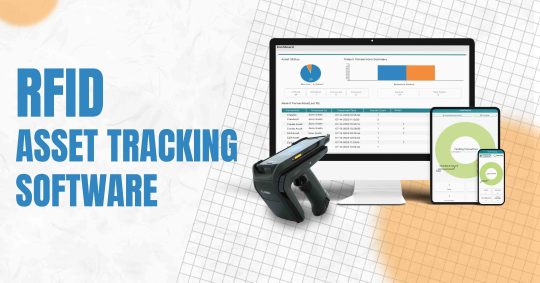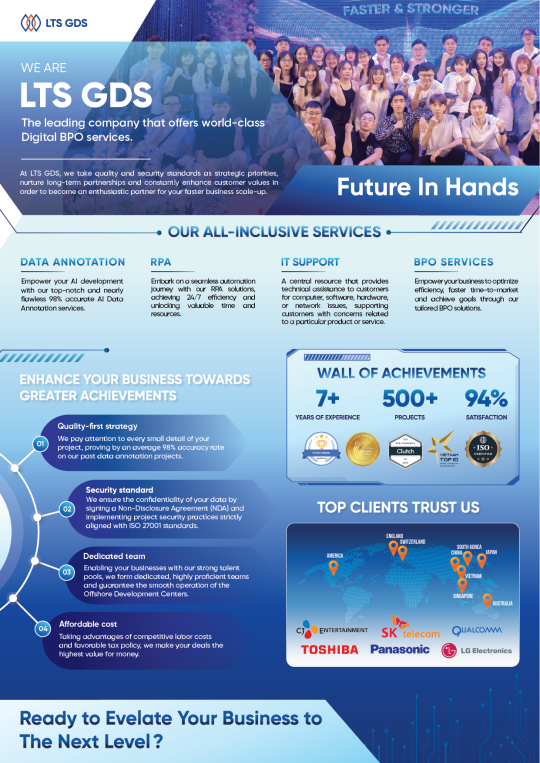#retail data accuracy
Explore tagged Tumblr posts
Text
Website : https://www.retailor.az
Address : Binəqədi, Azerbaijan
Retailor LLC specializes in Retail Audit, Retail Census, and Team Outsourcing services across Central Asia and the Caucasus. With over 15 years of experience in FMCG and Project Management, and 10 years in Retail Audit management, Retailor stands out for its in-depth knowledge of the retail market and advanced data collection and reporting tools. The company is committed to connecting retail execution with strategy, ensuring reliable and actionable data for partners like Coca-Cola, Unilever, and Colgate-Palmolive.
Linkedin : https://www.linkedin.com/company/retailor-llc/
Keywords: project management in retail retail business intelligence retail market research retail technology solutions retail market analysis retail strategy consulting retail execution management retail business operations retail audit services retail census solutions team outsourcing for retail retail strategy implementation fmcg market insights advanced retail data collection retail reporting technology retail execution optimization retail data accuracy retail partner support retail market efficiency retail audit management comprehensive retail audits data driven retail insights outsourced retail team expertise retail strategy implementation solutions cutting edge fmcg market analysis efficient project management in retail innovations in retail data collection technology driven retail reporting optimizing retail execution strategies data accuracy in retail analytics partner support for retail success enhancing retail market efficiency tailored retail technology solutions streamlined retail business operations effective retail audit management strategic retail consulting services in depth retail market research business intelligence for retail success proactive retail execution management retail audit and analysis strategic insights for retail growth professional retail team outsourcing retail strategy implementation tactics comprehensive fmcg market insights proven project management in retail cutting edge retail data solutions optimal retail execution strategies accuracy in retail data analytics partner support for retail excellence streamlining retail market efficiency efficient retail business operations expert retail audit management targeted retail audit and analysis
#project management in retail#retail business intelligence#retail market research#retail technology solutions#retail market analysis#retail strategy consulting#retail execution management#retail business operations#retail audit services#retail census solutions#team outsourcing for retail#retail strategy implementation#fmcg market insights#advanced retail data collection#retail reporting technology#retail execution optimization#retail data accuracy#retail partner support#retail market efficiency#retail audit management#comprehensive retail audits
1 note
·
View note
Text
Medical care demands a safe, clean environment. With the rise of COVID-19 and antibiotic-resistant diseases, now more than ever, cleaning must go beyond appearances as a matter of community health.
So, how can you ensure that your ER, recovery rooms, hallways, kitchen, washroom areas, elevators—every floor in the hospital—are clean enough to conform to the standards of high-quality healthcare? With our commecial healthcare cleaning tools combined with the i-know kit, you can monitor the cleanliness of all touchpoint areas. See the best cleaning tools for hospitals, including our i-know test kit to determine if surfaces have been adequately cleaned.
With i-know, it only takes around 60 seconds to measure dirt levels on a surface. That speed and accuracy empowers cleaning teams with useful data to get objective feedback on the quality of their commercial cleaning practises.
#clean environment. With the rise of COVID-19 and antibiotic-resistant diseases#cleaning must go beyond appearances as a matter of community health.#recovery rooms#hallways#kitchen#elevators—every floor in the hospital—are clean enough to conform to the standards of high-quality healthcare? With our commecial healthcar#you can monitor the cleanliness of all touchpoint areas. See the best cleaning tools for hospitals#it only takes around 60 seconds to measure dirt levels on a surface. That speed and accuracy empowers cleaning teams with useful data to ge#Cordless vacuums#Disinfectant sprayers#Air purifiers for offices#Cleaning equipment for healthcare#Floor scrubber machines#Cordless vacuum cleaners for business#Disinfection systems for hospitals#Healthcare cleaning solutions#Educational facility cleaning tools#Hospitality cleaning equipment#Industrial floor cleaning machines#Retail cleaning systems#Best floor scrubbers for commercial use
0 notes
Text
How to know if a USB cable is hiding malicious hacker hardware
Are your USB cables sending your data to hackers?

We expect USB-C cables to perform a specific task: transferring either data or files between devices. We give little more thought to the matter, but malicious USB-C cables can do much more than what we expect.
These cables hide malicious hardware that can intercept data, eavesdrop on phone calls and messages, or, in the worst cases, take complete control of your PC or cellphone. The first of these appeared in 2008, but back then they were very rare and expensive — which meant the average user was largely safeguarded.
Since then, their availability has increased 100-fold and now with both specialist spy retailers selling them as “spy cables” as well as unscrupulous sellers passing them off as legitimate products, it’s all too easy to buy one by accident and get hacked. So, how do you know if your USB-C cable is malicious?
Further reading: We tested 43 old USB-C to USB-A cables. 1 was great. 10 were dangerous
Identifying malicious USB-C cables
Identifying malicious USB-C cables is no easy task since they are designed to look just like regular cables. Scanning techniques have been largely thought of as the best way to sort the wheat from the chaff, which is what industrial scanning company, Lumafield of the Lumafield Neptune industrial scanner fame, recently set out to show.
The company employed both 2D and 3D scanning techniques on the O.MG USB-C cable — a well-known hacked cable built for covert field-use and research. It hides an embedded Wi-Fi server and a keylogger in its USB connector. PCWorld Executive Editor Gordon Ung covered it back in 2021, and it sounds scary as hell.
What Lumafield discovered is interesting to say the least. A 2D X-ray image could identify the cable’s antenna and microcontroller, but only the 3D CT scan could reveal another band of wires connected to a die stacked on top of the cable’s microcontroller. You can explore a 3D model of the scan yourself on Lumafield’s website.

It confirms the worst — that you can only unequivocally confirm that a USB-C cable harbors malicious hardware with a 3D CT scanner, which unless you’re a medical radiographer or 3D industrial scientist is going to be impossible for you to do. That being so, here are some tips to avoid and identify suspicious USB-C cables without high-tech gear:
Buy from a reputable seller: If you don’t know and trust the brand, simply don’t buy. Manufacturers like Anker, Apple, Belkin, and Ugreen have rigorous quality-control processes that prevent malicious hardware parts from making it into cables. Of course, the other reason is simply that you’ll get a better product — 3D scans have similarly revealed how less reputable brands can lack normal USB-C componentry, which can result in substandard performance. If you’re in the market for a new cable right now, see our top picks for USB-C cables.
Look for the warning signs: Look for brand names or logos that don’t look right. Strange markings, cords that are inconsistent lengths or widths, and USB-C connectors with heat emanating from them when not plugged in can all be giveaways that a USB-C cable is malicious.
Use the O.MG malicious cable detector: This detector by O.MG claims to detect all malicious USB cables.
Use data blockers: If you’re just charging and not transferring data, a blocker will ensure no data is extracted. Apart from detecting malicious USB-C cables, the O.MG malicious cable detector functions as such a data blocker.
Use a detection service: If you’re dealing with extremely sensitive data for a business or governmental organization, you might want to employ the services of a company like Lumafield to detect malicious cables with 100 percent accuracy. Any such service will come with a fee, but it could be a small price to pay for security and peace of mind.
11 notes
·
View notes
Text
Accounting and Bookkeeping Services in Delhi by SC Bhagat & Co.
Efficient financial management is the cornerstone of any successful business. Whether you're a startup, small business, or an established enterprise, maintaining accurate financial records is essential for growth and compliance. In the bustling hub of Delhi, SC Bhagat & Co. stands out as a trusted provider of professional accounting and bookkeeping services, tailored to meet diverse business needs.
Why Choose Accounting and Bookkeeping Services in Delhi? Accounting and bookkeeping are more than just financial chores. They form the backbone of strategic decision-making, regulatory compliance, and overall business stability. Here’s why professional accounting and bookkeeping services are crucial:
Accurate Financial Records: Ensure precise tracking of all transactions and cash flows. Regulatory Compliance: Stay updated with tax laws and regulatory changes. Time Savings: Focus on your core business while experts handle the numbers. Better Financial Insights: Gain actionable insights for informed decision-making. Avoid Errors: Eliminate mistakes that can lead to penalties or financial loss. About SC Bhagat & Co. With decades of expertise, SC Bhagat & Co. has become a trusted name in Delhi for accounting and bookkeeping services. The firm is known for its reliability, professionalism, and a client-centric approach that ensures tailored solutions for businesses across industries.
Key Services Offered:
Accounting Services:
Preparation and maintenance of financial statements. Monthly and annual reporting. Budgeting and forecasting. Bookkeeping Services:
Recording daily financial transactions. Reconciliation of accounts. Payroll processing and management. Tax Compliance and Planning:
GST filing and compliance. Income tax returns and advisory. Support during audits and assessments. Financial Advisory:
Cash flow management. Profitability analysis. Strategic financial planning. Why SC Bhagat & Co. Stands Out for Accounting and Bookkeeping Services in Delhi
Experienced Professionals: A team of qualified accountants ensures top-notch service quality. Customized Solutions: Services are tailored to the specific needs of your business. Cutting-Edge Technology: Use of advanced accounting tools and software for accuracy and efficiency. Transparent Pricing: Competitive and clear pricing with no hidden charges. Client-Centric Approach: Emphasis on understanding client goals and delivering results that align with their vision. Industries We Serve SC Bhagat & Co. serves a wide range of industries, including:
Manufacturing Retail and e-commerce Real estate Healthcare IT and software Non-profit organizations Benefits of Partnering with SC Bhagat & Co. When you choose SC Bhagat & Co., you gain a partner who is invested in your success. Key benefits include:
Enhanced financial accuracy and efficiency. Assurance of compliance with all regulatory requirements. Access to real-time financial data for better decision-making. Reduction in operational costs through outsourcing. Why Delhi Businesses Trust for Accounting and Bookkeeping Services in Delhi by SC Bhagat & Co. Operating in Delhi’s dynamic business environment requires financial precision and agility. SC Bhagat & Co. has a deep understanding of the local market, tax regulations, and industry-specific challenges, making it the go-to firm for accounting and bookkeeping services in the capital. Get Started Today Simplify your financial management and focus on scaling your business by outsourcing your accounting and bookkeeping needs to SC Bhagat & Co.. Contact us today for a consultation and take the first step toward streamlined financial operations.
3 notes
·
View notes
Text
They had come to see the book. It was a rarity, a curiosity, even in this most fertile age of literature, with more novels published each year than the last - for, amongst such endless propagation, few survived even a decade down the line. There had been no reason to cling to a single rigid tome, no veneration of the classics, ever since the authors went extinct.
It had happened almost overnight. There had been signs, in the build-up: a sky that darkened at the edges, a scarlet glow beneath the waiting clouds, as computer programs slowly learnt to emulate, to replicate without the usual tells, but the breakthrough had been night and day.
Up until that point, human authors had still stood head and shoulders clear of their artificial usurpers. But once a certain level of fidelity had been reached, they found themselves suddenly surpassed and superseded: they were left to gather dust with their typewriters and keyboards and other obsolete apparatus, taking their place as the latest casualties of progress.
The editors had briefly come to fill their niche, like the terror birds who clung on when the great therapods were gone, able to fine tune this sudden glut of raw material, putting their name to it, still perched on top of the food chain. But it was only a stay of extinction, and soon the software had evolved again, able to churn out perfect novels every time.
Publishers also had their time in the sun, having survived the meteorite's first impact and growing wealthy on free manuscripts, but their part of the production line was perhaps the easiest to automate, having mostly just required time and certain contacts, and the machines could draw upon plenty of both. In fact, they could dispense with the marketing, the retailers - they simply sold a printer with the program installed, and left each purchaser's books to be unique. Every home became a publishing house, and therefore none of them were.
"Is it old?" one of the visitors asked.
"The 20s," the owner confirmed, conjuring up images of that broken time, a world recovering from plague and war.
That had come just before the tipping point, the greatest expansion since the invention of the printing press. Readers could conjure up whole libraries on a whim, and replace them just as easily, the words pulped with the paper and recycled into something new.
There had been fears that the machines would be limited, producing variations on the same theme, restricted by their lack of true imagination, but nothing had been further from the truth. As the products of more input than any human brain could ever dream to hold, they went far beyond any of their forebears, an imagination unlimited by memory or computing power, but free to dream as only a computer could.
If Lovecraft wrote of horrors that no mortal mind could comprehend, the program could produce them, understand them, and describe them on the page. If Asimov envisioned the future, the program could predict it. All world-building was put to shame by software which could simulate whole galaxies, write with perfect historical accuracy, or explore inaccuracies and their consequences with access to all the data that had ever been preserved.
But aesthetes still sought out authenticity, and that brought them to his door. His book was hand-bound in that antiquated way, wearing its maker's mark along its spine, a badge upon its back spelling its name in bar code runes, as much old produce was known to do, before the computers learnt to recognise by shape instead. Somebody had illustrated the cover by hand, finger and brush. It had all been added manually, even the blank spaces inside.
"It's beautiful," they said.
20 notes
·
View notes
Text
Future-Proofing Industry Insights: AI as the Key to Market Evolution

One tool that is becoming essential for this is Artificial Intelligence (AI). By integrating AI into market analysis, businesses are transforming how they understand their industries and plan for the future. But how does AI help with this, and why is it such a game-changer?
What is AI in Market Insights?
Artificial Intelligence refers to computer systems designed to mimic human intelligence. In market analysis, AI can analyze large sets of data much faster and more accurately than any human ever could. It helps businesses uncover patterns, predict future trends, and make informed decisions based on real-time data.
Instead of relying on gut feelings or traditional methods, AI can process huge amounts of information from various sources—everything from social media posts to financial reports. This makes it easier to understand customer behavior, identify new opportunities, and respond to changes in the market.
The Benefits of AI in Market Evolution
Faster Decision Making: Traditional market analysis can take weeks or even months. With AI, businesses can receive insights in real-time. For example, if a new competitor enters the market, AI can quickly analyze their impact and suggest strategies to stay competitive.
Better Accuracy: Humans are prone to errors, but AI can process data with incredible precision. It reduces the chances of missing important trends or making decisions based on inaccurate information. This level of accuracy ensures businesses make the right moves at the right time.
Predictive Power: One of AI's most powerful features is its ability to predict future trends. Using historical data, AI can forecast market shifts, customer behavior changes, or even potential economic downturns. This predictive capability allows companies to plan ahead, mitigate risks, and take advantage of emerging opportunities.
Personalized Insights: Every business is unique, and AI can deliver insights tailored to specific industries or company needs. For example, a fashion retailer might use AI to track seasonal trends, while a tech company could use it to monitor the latest innovations. AI helps businesses focus on what matters most to them.
Improved Efficiency: AI can automate routine tasks like data collection and reporting. This frees up time for employees to focus on more strategic work, such as creative problem-solving or developing new products. By enhancing efficiency, AI allows businesses to do more with less effort.
How AI is Changing Market Analysis
The impact of AI on market analysis is revolutionary. In the past, businesses relied heavily on historical data and general trends to make decisions. Today, AI provides a much deeper understanding of the market.
For instance, AI can analyze customer reviews, social media conversations, and online searches to give businesses real-time feedback on how their products are perceived. This allows companies to quickly adjust their marketing strategies or make product improvements.
In addition, AI is helping businesses identify new markets and customer segments. By analyzing global data, AI can pinpoint areas with growing demand or untapped opportunities. This gives companies a head start in entering new markets or developing products for emerging customer needs.
The Future of Market Insights with AI
As AI technology continues to evolve, its role in market analysis will only grow. Businesses that invest in AI now will be better positioned to adapt to future changes in their industries.
The future will likely see even more advanced AI systems capable of understanding complex market dynamics and providing insights that were previously unimaginable. For example, AI could help predict consumer behavior changes before they happen or identify entirely new business models.
Conclusion
In an increasingly competitive global marketplace, businesses must find ways to stay ahead. AI is proving to be a vital tool in this quest. By offering faster, more accurate, and personalized insights, AI is helping companies not only survive but thrive in evolving markets.
The key to future-proofing industry insights lies in AI's ability to transform raw data into actionable strategies. As this technology continues to develop, its impact on market evolution will only become more profound. Embracing AI today means being ready for tomorrow’s challenges—and opportunities.
Also read: b2b market research services
healthcare market research services
#data analytics#market research#data collection#datainsights#surveyprogramming#artificial intelligence
2 notes
·
View notes
Text
The Rise of Augmented Reality in Everyday Life
Augmented Reality (AR) is a transformative technology that superimposes digital information onto the real world, enhancing our perception of reality. Unlike Virtual Reality (VR), which creates an entirely immersive virtual environment, AR overlays digital elements—such as images, sounds, or text—onto our physical surroundings using devices like smartphones, tablets, or AR glasses.

Present-day Uses of AR Augmented reality (AR) is altering how we interact with technology and the world around us by making substantial breakthroughs across multiple fields.
Retail: AR is being used by retailers to improve the in-store experience. Customers may see how makeup, accessories, and clothing will appear on them without having to visit a store by using virtual try-on apps. One example is the AR app from IKEA, which allows users to see how furniture would fit and appear in their houses.
Healthcare: AR is being used in healthcare to help with medical training and complicated procedures. During procedures, surgeons can access real-time data and 3D organ renderings with AR glasses, which will increase accuracy and improve results.
Education: By increasing interaction and engagement, augmented reality is revolutionizing the way people learn. By allowing students to investigate 3D replicas of historical sites, the solar system, or anatomical structures, they may make abstract ideas come to life.
Entertainment: AR has been warmly welcomed by the entertainment sector. Augmented reality (AR) is giving consumers new experiences in everything from immersive movie advertising to apps like Pokémon Go that mix virtual characters with actual locales.

Improving Social Media and Mobile App User Experiences AR features are being added to mobile apps and social media platforms more often to draw consumers in. AR filters are a feature of Instagram and Snapchat that enhance images and videos with fun, animated effects, encouraging user creativity and interaction. With the use of augmented reality (AR) apps like Google Lens, users can quickly get information about items, landmarks, and other subjects by pointing the camera of their phone at objects.
Effects on Marketing and Advertising Plans Through the creation of immersive, interactive campaigns that grab consumers' attention, augmented reality is transforming marketing and advertising. Through gamified marketing, interactive advertisements, and virtual product demos, brands are utilizing augmented reality to increase engagement and conversion. For instance, Pepsi's augmented reality bus stop campaign left a lasting impression by delighting onlookers with lifelike digital animations.

Prospects & Development Trends for AR in the Future The development of augmented reality (AR) is expected to continue due to ongoing technological developments. AR experiences will be improved, becoming more smooth and accessible with advancements in AR glasses, computing power, and AI integration. We may anticipate that augmented reality (AR) will revolutionize a number of businesses and how we communicate with one another.

Conclution The emergence of augmented reality is evidence of the infinite applications of technology. AR is changing our daily experiences in a variety of ways, from improving healthcare and retail to transforming education and entertainment. As augmented reality develops, it promises to usher in a day where the virtual and real worlds coexist peacefully, presenting countless chances for creativity and interaction.
2 notes
·
View notes
Text
Maximizing Business Insights with Power BI: A Comprehensive Guide for Small Businesses
Maximizing Business Insights Small businesses often face the challenge of making data-driven decisions without the resources of larger enterprises. Power BI, Microsoft's powerful analytics tool, can transform how small businesses use data, turning raw numbers into actionable insights. Here's a comprehensive guide to maximizing business insights with Power BI.
Introduction to Power BI
Power BI is a business analytics service by Microsoft that provides interactive visualizations and business intelligence capabilities. With an interface simple enough for end users to create their own reports and dashboards, it connects to a wide range of data sources.
Benefits for Small Businesses
1. User-Friendly Interface: Power BI's drag-and-drop functionality makes it accessible for users without technical expertise.
2. Cost-Effective: Power BI offers a free version with substantial features and a scalable pricing model for additional needs.
3. Real-Time Data: Businesses can monitor their operations with real-time data, enabling quicker and more informed decision-making.
Setting Up Power BI
1. Data Sources: Power BI can connect to various data sources such as Excel, SQL databases, and cloud services like Azure.
2. Data Modeling: Use Power BI to clean and transform data, creating a cohesive data model that forms the foundation of your reports.
3. Visualizations: Choose from a wide array of visualizations to represent your data. Customize these visuals to highlight the most critical insights.
Customizing Dashboards
1. Tailor to Needs: Customize dashboards to reflect the unique needs of your business, focusing on key performance indicators (KPIs) relevant to your goals.
2. Interactive Reports:Create interactive reports that allow users to explore data more deeply, providing a clearer understanding of underlying trends.
Real-World Examples
Several small businesses have successfully implemented Power BI to gain a competitive edge:
1. Retail: A small retail store used Power BI to track sales trends, optimize inventory, and identify peak shopping times.
2. Finance:A small financial advisory firm employed Power BI to analyze client portfolios, improving investment strategies and client satisfaction.
Integration with Existing Tools
Power BI seamlessly integrates with other Microsoft products such as Excel and Azure, as well as third-party applications, ensuring a smooth workflow and enhanced productivity.
Best Practices
1. Data Accuracy: Ensure data accuracy by regularly updating your data sources.
2. Training: Invest in training your team to use Power BI effectively.
3. Security: Implement robust security measures to protect sensitive data.
Future Trends
Power BI continues to evolve, with future updates likely to include more advanced AI features and enhanced data processing capabilities, keeping businesses at the forefront of technology.
Conclusion
Power BI offers small businesses a powerful tool to transform their data into meaningful insights. By adopting Power BI, businesses can improve decision-making, enhance operational efficiency, and gain a competitive advantage. Partnering with Vbeyond Digital ensures a smooth and successful implementation, maximizing the benefits of Power BI for your business. with Power BI: A Comprehensive Guide for Small Businesses
2 notes
·
View notes
Text
🤖 Artificial Intelligence (AI): What It Is and How It Works
Artificial Intelligence (AI) is transforming the way we live, work, and interact with technology. Let's break down what AI is and how it works. 🌐
What Is AI?
AI refers to the simulation of human intelligence in machines designed to think and learn like humans. These intelligent systems can perform tasks that typically require human intelligence, such as recognizing speech, making decisions, and translating languages.
How AI Works:
Data Collection 📊 AI systems need data to learn and make decisions. This data can come from various sources, including text, images, audio, and video. The more data an AI system has, the better it can learn and perform.
Machine Learning Algorithms 🤖 AI relies on machine learning algorithms to process data and learn from it. These algorithms identify patterns and relationships within the data, allowing the AI system to make predictions or decisions.
Training and Testing 📚 AI models are trained using large datasets to recognize patterns and make accurate predictions. After training, these models are tested with new data to ensure they perform correctly.
Neural Networks 🧠 Neural networks are a key component of AI, modeled after the human brain. They consist of layers of interconnected nodes (neurons) that process information. Deep learning, a subset of machine learning, uses neural networks with many layers (deep neural networks) to analyze complex data.
Natural Language Processing (NLP) 🗣 NLP enables AI to understand and interact with human language. It’s used in applications like chatbots, language translation, and sentiment analysis.
Computer Vision 👀 Computer vision allows AI to interpret and understand visual information from the world, such as recognizing objects in images and videos.
Decision Making and Automation 🧩 AI systems use the insights gained from data analysis to make decisions and automate tasks. This capability is used in various industries, from healthcare to finance, to improve efficiency and accuracy.
Applications of AI:
Healthcare 🏥: AI aids in diagnosing diseases, personalizing treatment plans, and predicting patient outcomes.
Finance 💰: AI enhances fraud detection, automates trading, and improves customer service.
Retail 🛍: AI powers recommendation systems, optimizes inventory management, and personalizes shopping experiences.
Transportation 🚗: AI drives advancements in autonomous vehicles, route optimization, and traffic management.
AI is revolutionizing multiple sectors by enhancing efficiency, accuracy, and decision-making. As AI technology continues to evolve, its impact on our daily lives will only grow, opening up new possibilities and transforming industries.
Stay ahead of the curve with the latest AI insights and trends! 🚀 #ArtificialIntelligence #MachineLearning #Technology #Innovation #AI
3 notes
·
View notes
Text

RFID asset tracking software
RFID asset tracking software - RFID4U Store India RFID asset tracking software enhances operational efficiency by automating the monitoring and management of assets using RFID technology. It improves inventory accuracy, reduces manual errors, and streamlines asset utilization. By providing real-time data and analytics, it enables businesses to make informed decisions, optimize workflows, and minimize costs. RFID asset tracking software is crucial for industries such as healthcare, manufacturing, logistics, and retail, where efficient asset management is essential for productivity and profitability.
#RFID software#RFID asset tracking system#RFID asset tracking software#RFID inventory tracking software
2 notes
·
View notes
Text
Our IT Services

With more than 7 years of experience in the data annotation industry, LTS Global Digital Services has been honored to receive major domestic awards and trust from significant customers in the US, Germany, Korea, and Japan. Besides, having experienced hundreds of projects in different fields such as Automobile, Retail, Manufacturing, Construction, and Sports, our company confidently completes projects and ensures accuracy of up to 99.9%. This has also been confirmed by 97% of customers using the service.
If you are looking for an outsourcing company that meets the above criteria, contact LTS Global Digital Service for advice and trial!
2 notes
·
View notes
Text
File: Assassin's Creed - Crescent Amulet
.
Warning! The following is to only be seen by administrators and O5 council members. If you are not of Level 5 Clearance, you will be exterminated by order of the O5 council!
SCANNING
...
...
...
CHECKING RANK DATA OF VIEWER
...
...
...
RANK OF VIEWER CONFIRMED
...
...
...
NO SIGNS OF TAMPERING DETECTED
...
...
...
WELCOME TO THE FAMILY
...
...
...
VIEWING OF SCP-AGS APPROVED
.
SCP#: AGS
Code Name: The Crescent Amulet
Object Class: Anticipi
Special Containment Procedures: SCP-AGS is to be sent to Site-AP and locked within the Level 4 Emergency Armory. The armory locked behind advanced and experimental containment locks and security measures to ensure no one without the passcode identification can pass through. The armory is to only be opened when a worst-case K Class Apocolyptic Scenario event occurs. As such anyone who accesses SCP-AGS when no such event has occurred or without the proper clearance, they are to be targeted with Protocol Legacy's Downfall, there will be no exceptions.
Description: SCP-AGS is a crescent shaped amulet made by Species of Interest: The ISU. the amulet has the same anomalous ability as most ISU technology does which is to control the minds of everyone except those with [data expunged] status. However, SCP-AGS is a specialized item belonging to the ISU, so it is in possession of several other anomalous abilities.
Such anomalous abilities include:
- Necromancy - SCP-AGS allows the user to heal all wounds even fatal wounds to bring even the dead back to life. However, if someone has been dead for 72 hours or longer than the body will be possessed by energy of the SCP-AGS and not the original soul. These undead corpses will obey the user of SCP-AGS until they are destroyed. The user is able to summon at least [data expunged] of these undead corpses though possibly more.
- Illusion projection - SCP-AGS can project illusions into the mind of anyone who is able to be under the influence of mind control. Such illusions can affect all five of the senses quite easily and without restrictions. Though the limit is that only five people at a time can be subjected to these illusions and it must be the same illusion for all of them.
- Holographic projection - SCP-AGS can project 3D holograms of anything the user desires weather it be data, recordings caught form SCP-AGS's memory of previous users, or anything else from the current SCP-AGS user's memory or even their imagination.
- Accelerate learning - The wearer of SCP-AGS is able to process information at an accelerated pace and can retail all memories of what they learned while wearing SCP-AGS. SCP-AGS essentially turns the user's brain into a computer able to not only think fast but able to make their own calculations and think up simulated experiments like a computer can with the same if not more effective accuracy. They'll be able to remember, learn, and think with perfect speed, clarity, and efficiently.
- Immunity to Stalking - SCP-AGS prevents anyone, and anything form watching them from far distances. This includes usage of telescope or similar tool, satellite cameras, magic, thaumaturgic rituals, metaphysical means, recordings, use of anomalous senses, thaumaturgic technology, para technology, and other anomalous means. All attempts either lead to malfunction, pain in the viewer's eyes, and/or the complete erase of memories of viewing in the first place.
SCP-AGS was discovered in 2020 after it was retrieved in the mission when Mobile Task Force Athena-1 "Assassin's Creed" came into conflict with Group of Interest: The Valravn Corporation over a shipment of anomalous items owned by Group of Interest: Abstergo Industries. Thankfully Captain Alexia and her team managed to take the entirety of the shipment including SCP-AGS with minimal casualties. Surprising since they had to fight against both Groups of Interest at the time. Please see Action Report: Assassins vs Vikings for details.
Because SCP-AGS was deemed dangerous a majority of the Foundation agreed it should be locked away in Site-AP until such time as it is needed like an K Class Apocalyptic Scenario.
.
SCP: Horror Movie Files Hub
#DZtheNerd#SCP: Horror Movie Files#SCP: HMF#SCP Foundation#SCP Fanfiction#SCP AU#SCP#SCP Fanmade#Assassin's Creed#Assassin's Creed Series#Piece of Eden#Pieces of Eden#Non Horror#Video Game#Video Game Series#SCP-AGS#Anticipi#Site-AP#Mobile Task Force Athena-1 “Assassin's Creed”#Group of Interest: The Valravn Corporation#Group of Interest: Abstergo Industries
2 notes
·
View notes
Text
Navigating the Landscape of Tax Preparation and Bookkeeping Services- A Guide to Choosing the Best Agencies
Tax preparation and bookkeeping are integral parts of running a successful business. However, for many entrepreneurs and business owners, these tasks can be daunting and time-consuming. That's where professional services come in handy. In cities like Perth, Brisbane, Sydney, Melbourne, Adelaide, and NSW, agencies like Account Cloud offer comprehensive tax preparation and bookkeeping services to alleviate the burden on businesses. But with so many options available, how do you choose the best agency for your needs? Here's a guide to help you navigate the landscape:
1. Assess Your Needs: Before you start your search for a tax preparation and bookkeeping service agency, it's essential to assess your needs. Determine the scope of services you require, such as tax filing, payroll processing, financial reporting, or general bookkeeping. Understanding your requirements will help you narrow down your options and find agencies that specialize in the services you need.
2. Experience and Expertise: When entrusting your financial matters to a third-party agency, it's crucial to ensure they have the necessary experience and expertise. Look for agencies with a proven track record in tax preparation and bookkeeping services. Consider factors such as the number of years in business, client testimonials, and the qualifications of their team members.

3. Industry Specialization: Different industries have unique tax and accounting requirements. Whether you're in retail, hospitality, healthcare, or any other sector, consider choosing an agency that specializes in serving businesses similar to yours. Industry-specific knowledge can ensure compliance with relevant regulations and optimize tax strategies tailored to your business.
4. Technology and Innovation: The accounting landscape is continually evolving, with advancements in technology reshaping how financial tasks are performed. Seek out agencies that embrace technology and leverage innovative solutions to streamline processes and enhance accuracy. Cloud-based accounting platforms, automation tools, and data analytics can significantly improve efficiency and decision-making.
5. Communication and Accessibility: Effective communication is key to a successful partnership with a tax preparation and bookkeeping agency. Choose an agency that prioritizes clear and transparent communication, keeping you informed about your financial status and any regulatory changes that may affect your business. Additionally, consider their accessibility and responsiveness to inquiries or concerns.
6. Compliance and Security: Compliance with tax laws and regulations is non-negotiable when it comes to financial matters. Ensure that the agency you choose adheres to the highest standards of compliance and stays updated with the latest regulatory changes. Moreover, prioritize security measures to protect sensitive financial information against unauthorized access or data breaches.
7. Scalability and Flexibility: As your business grows, your accounting needs may evolve as well. Select a tax preparation and bookkeeping agency that can scale its services according to your business growth. Whether you're a small startup or a large enterprise, flexibility in service offerings and pricing structures ensures that you receive tailored solutions aligned with your current and future needs.
8. Cost and Value: While cost is undoubtedly a factor in the decision-making process, it's essential to consider the value proposition offered by the agency. Instead of solely focusing on the lowest price, evaluate the services, expertise, and support provided in relation to the cost. A higher upfront investment in quality services can often yield long-term benefits and cost savings through improved financial management.
Choosing the best tax preparation and bookkeeping services agency requires careful consideration of various factors, including your specific needs, the agency's experience and expertise, industry specialization, technology adoption, communication practices, compliance standards, scalability, and cost-effectiveness. By conducting thorough research and due diligence, you can find a trusted partner like Account Cloud to handle your financial affairs efficiently, allowing you to focus on growing your business with peace of mind.
#Bookkeeping Services Melbourne#Bookkeeping Services Brisbane#Bookkeeping Services Perth#Perth Bookkeeping Services#Adelaide Bookkeeping Services#Online Bookkeeping and Accounting Perth#Online Bookkeeping Services Melbourne#Small Business Bookkeeping Services Brisbane#Small Business Bookkeeping Services Sydney#Small Business Bookkeeping Services Perth#Small Business Bookkeeping Services NSW#Premier Tax and Bookkeeping Adelaide#Tax and Accounting Services Brisbane#Tax and Accounting Services Sydney#Tax and Accounting Services Perth#Personal Tax Accountant Brisbane
3 notes
·
View notes
Text
Printing Press in Sharjah: The Type of Service Your Business Needs
In the bustling emirate of Sharjah, where business and innovation thrive, the demand for reliable and high-quality printing services in Dubai is ever-present. A crucial aspect of marketing and brand communication, printing plays a pivotal role in shaping the identity of businesses. In this dynamic environment, choosing the right printing press in Sharjah becomes paramount. This article explores the various types of printing services available in Sharjah and how businesses can make informed decisions to meet their unique needs.

The Landscape of Printing Press in Sharjah
A Flourishing Industry
Sharjah, often referred to as the cultural capital of the United Arab Emirates, is home to a thriving printing industry. The emirate has witnessed significant growth in recent years, with numerous printing presses catering to the diverse needs of businesses ranging from small startups to large corporations.
Technological Advancements
One of the key reasons behind the success of the printing company Sharjah is its adoption of cutting-edge technologies. From offset printing to digital printing, these presses leverage state-of-the-art equipment to ensure efficiency, precision, and a wide range of capabilities.
Types of Printing Services Offered
1. Offset Printing
Offset printing remains a popular choice for businesses requiring large quantities of printed materials. This traditional method involves transferring ink from a plate to a rubber sheet, which then makes contact with the printing surface. Offset printing is known for its high-quality results, making it suitable for items like brochures, catalogs, and business cards.
2. Digital Printing
In the era of quick turnarounds and short print runs, digital printing has gained prominence. This method eliminates the need for printing plates, allowing for on-demand printing with minimal setup time. Digital printing is ideal for projects that require customization, such as personalized marketing materials, variable data printing, and short print runs.
3. Large Format Printing
For businesses looking to make a bold visual impact, large-format printing is the go-to option. This service is capable of producing oversized prints on various materials, including banners, posters, and signage. Large-format printing is crucial for events, trade shows, and outdoor advertising, providing businesses with a powerful tool to capture attention.
4. Promotional Items Printing
Printing press in UAE also offers services for printing on promotional items. This includes branded merchandise like pens, mugs, and T-shirts. Businesses can enhance their marketing efforts by incorporating their logos and messaging onto these items, creating tangible and memorable connections with their target audience.
5. Packaging Printing
In the competitive landscape of retail, packaging plays a crucial role in attracting customers. Printing press in Sharjah provides specialized services for packaging printing, ensuring that products stand out on the shelves. Whether it's food packaging, cosmetic boxes, or product labels, these presses deliver high-quality packaging solutions.
Choosing the Right Printing Press In Sharjah
1. Understanding Your Needs
Before selecting a printing press in Sharjah, it's essential for businesses to clearly define their printing needs. Consider the type of materials to be printed, the desired quantity, and any specific customization requirements. This initial assessment sets the foundation for finding a printing press that aligns with the unique goals of the business.
2. Quality and Technology
The quality of printed materials reflects directly on a business's image. When choosing a printing press, inquire about the technologies they employ and the quality control measures in place. High-resolution printing, color accuracy, and attention to detail are crucial factors that contribute to the overall quality of the final product.
3. Turnaround Time
In the fast-paced business environment of Sharjah, turnaround time is a critical consideration. Different printing presses may have varying production timelines. Businesses should communicate their timelines and deadlines upfront to ensure that the printing press can meet or exceed expectations.
4. Cost Considerations
While quality is paramount, businesses must also consider the cost implications of their printing projects. Obtain detailed quotes from the potential printing press in Sharjah, including any additional charges for customization or expedited services. Comparing costs against the expected quality and services helps businesses make informed decisions.
5. Customer Reviews and Reputation
Before finalizing a choice, it's advisable to research the reputation of the printing press. Customer reviews, testimonials, and case studies provide valuable insights into the experiences of other businesses. A printing press with a positive track record of customer satisfaction is more likely to deliver reliable and satisfactory results.
Conclusion
In the vibrant business landscape of Sharjah, choosing the right printing press is a strategic decision that can significantly impact a company's success. Whether it's traditional offset printing for large quantities or cutting-edge digital printing for on-demand needs, the diverse range of services offered by the printing press in Sharjah caters to the multifaceted requirements of businesses. By understanding their unique printing needs, and considering factors like quality, turnaround time, cost, and reputation, businesses can forge lasting partnerships with printing presses that elevate their brand presence and communication.
2 notes
·
View notes
Text
A post about North American sales data for Klonoa 1 & 2
I can't really think of an introduction, so here are the key points of the full post for convenience's sake:
The NPD Group (now one half of Circana) has tracked video game sales in North America since 1995 - initially(?) integrating it into their Toy Research Survey Tracking (TRST) system, which tracked sales reported by 17 different retails comprising 63% of the North American market. It's not a perfect system by any means, but it's something, at least.
While the organization discouraged publishing the raw data, a random, long-dead website seems to have done just that for the months of December 2002 and January 2003.
According to the latter spreadsheet, by January 2003, Klonoa: Door to Phantomile and Klonoa 2: Lunatea's Veil had respectively sold 25,861 and 97,766 copies in their retail lifespans at that point. (I'm not entirely sure whether this is specifically for the US or North America more broadly.)
More details after the jump.
To set the scene, this excerpt from the April 1997 issue of Next Generation magazine provides a good explanation of how the TRST system works, including the potential pitfalls in its methodology:

Also worth noting is that Walmart stopped providing sales figures to TRST starting in July 2001, the same month Lunatea's Veil released in the US. (Toys R Us would follow suit in the middle of August 2003, though this is not especially relevant here.) This, naturally, is a fairly significant blind spot in the data - by February 2012, when Walmart resumed providing numbers to the NPD Group, an analyst estimated the chain was responsible for 25-30% of video game sales in the US, and I have no reason to believe they weren't pulling similar numbers in the early 2000s.
Now, one may wonder how the public would've been able to get their hands on sales numbers that the Group insisted on keeping private. In this case, the answer is a random, long-defunct website republishing two spreadsheets claiming to have TRST data for video games sold in December 2002 and January 2003. I can't verify the accuracy of these web pages myself, but given their age I suspect it'd be difficult to decisively prove it either way. Plus, aside from some simple yet odd date typos in the 2003 spreadsheet, from what I've read they seem official and plausible - not to mention reasonably comprehensive.
With all that buildup out of the way, here are what I believe may be some of (if not the only) publicly-accessible sales figures for Door to Phantomile and Lunatea's Veil in North America (or at least the US).

The original spreadsheet for December 2002 puts Door to Phantomile quite a ways down, since it hadn't sold any copies that month. Nevertheless, it does give us a figure for the copies it'd sold in its lifetime (beginning with its release in March 1998): 25,851.

Lunatea's Veil, a relatively current release, fares better. Between July 2001 and December 2002, TRST's data says it sold 97,220 copies, with 1,138 being sold that month alone. The numbers on the right (rounded to two decimal places) indicate that, for the month of December 2002, it was sold for an average of $28.18 and brought in a total of $32,066.35.

Now we progress to January 2003. Unsurprisingly, Door to Phantomile did not sell any additional copies that month, remaining exactly as it was.

Lunatea's Veil sold 546 more copies, however, bringing its total sales up to 97,766. As before, the two rightmost columns track its average price ($19.81) and the total amount of money it brought in ($10,814.42), both specifically for January 2003. However, the two asterisks next to the latter number indicate that it may be inaccurate, so please take it with a larger grain of salt than the rest of the data.
I must admit I don't really have a conclusion here, outside of the obvious ways to interpret this data (the first game sold poorly, the second one did better but not exceptionally). If you have anything to add, please feel free to!
2 notes
·
View notes
Text
Data Science in Marketing
Data Science in Marketing
Have you ever bought something online, only to have ads for similar items follow you around the internet? This is a common example of how data science is being used in marketing. Many of us engage with data-driven marketing applications on a regular basis, often without realizing that our decisions are influenced by them.
Data science in marketing involves the use of advanced analytics, machine learning algorithms, and statistical models to interpret complex datasets. This process provides marketers with actionable insights, enabling them to make informed decisions and develop strategies that resonate with their target audience. From customer segmentation to predictive modeling, data science techniques empower marketers to unlock valuable patterns and trends within their data.
One fundamental application of data science in marketing is customer segmentation. By leveraging clustering algorithms, marketers can categorize their audience into distinct groups based on shared characteristics, behaviors, and preferences. This allows for highly targeted and personalized marketing campaigns, as evidenced by a study conducted by McKinsey & Company [1]. The report emphasizes that companies implementing data-driven segmentation strategies witness a significant boost in customer engagement and satisfaction.
Moreover, predictive modeling is another area where data science proves its worth in marketing. Through predictive analytics, businesses can forecast future trends, customer behaviors, and market dynamics. This capability is exemplified in a case study by IBM [2], where a major retailer utilized predictive modeling to optimize its inventory management and anticipate customer demands. The result was not only a reduction in excess inventory but also a substantial increase in overall sales.
Data science's role in digital marketing assumes a more prominent stance. Algorithms powering recommendation engines, personalized content delivery, and dynamic pricing strategies are all manifestations of data-driven decision-making. Amazon, a pioneer in utilizing data science in its marketing approach, provides a noteworthy example. The e-commerce giant leverages machine learning algorithms to analyze customer data which include browsing and purchasing patterns, tailoring product recommendations with remarkable accuracy [3]. All the analyzed data are then leveraged via Amazon’s recommendation engine. Every time a user searches for a specific product, this data helps the platform predict what else the user will have interest in. This in turn allows Amazon to enhance their procedure of convincing the consumer into purchasing other products.
Data science and marketing converge seamlessly in the hands of TastyPlacement, a digital marketing agency that sets the standard for data-driven success. TastyPlacement employs a data-centric approach to search engine optimization (SEO), pay-per-click (PPC) advertising, and web design, among other services. Our commitment to utilizing data science for marketing effectiveness is evident in our strategies that prioritize measurable outcomes and ROI. Readers interested in exploring real-world applications of data science in marketing can find valuable insights on TastyPlacement's website [4].
Data science has become an indispensable tool in the marketing arsenal, enabling businesses to navigate the complexities of the modern landscape with precision and efficiency. From customer segmentation to predictive modeling, the integration of data science techniques empowers marketers to make informed decisions, optimize campaigns, and ultimately enhance the customer experience. As technology continues to advance, the synergy between data science and marketing is poised to shape the future of how businesses connect with their audiences.
[1]: https://www.mckinsey.com/careers/meet-our-people/careers-blog/joyce
[2]: https://www.ibm.com/topics/predictive-analytics
[3]: https://www.amazon.science/the-history-of-amazons-recommendation-algorithm
[4]: https://www.tastyplacement.com/
Author: Gerry l
2 notes
·
View notes